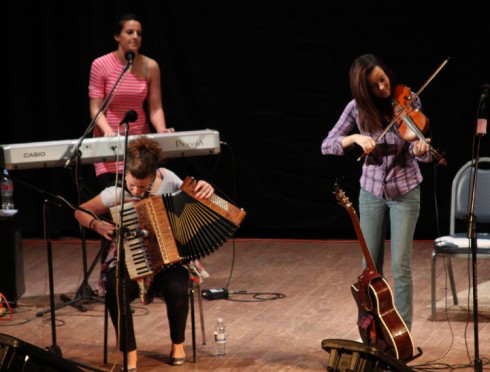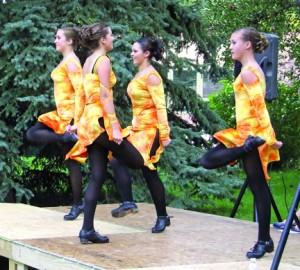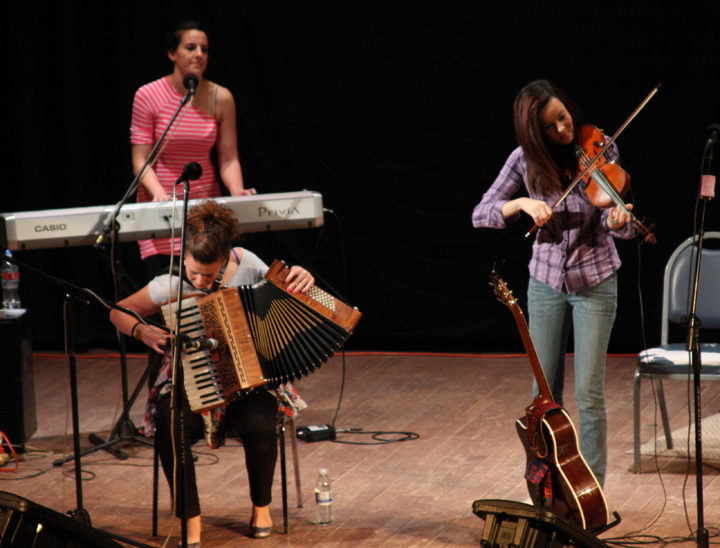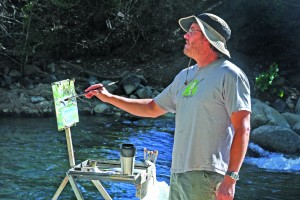by Elliot Jackson
When I moved to Colorado from Chicago over ten years ago, there were many things about the city that I found myself delighted to be leaving behind: traffic, crime and wild extremes of climate among them. However, the one thing I found myself indubitably missing – and craving – was its music scene: specifically, its Celtic (Scottish and Irish) music scene. Chicago was home to some of the best Celtic musicians on the planet, and it seemed like there were sessions and concerts almost every night of the week. In addition, there was always the chance to take lessons in any instrument, from harp to fiddle to accordion to bagpipes, from some of these musicians, either privately or through venerable institutions like the Old Town School of Folk Music or the Irish Heritage Center.

The Celtic music scene in rural Colorado, by contrast, seemed to be a largely DIY kind of affair, and opportunities for networking and making music were rarer and more haphazard. Oddly enough, it was through the auspices of two musicians I knew from Chicago days, Shannon and Matt Heaton, that I found out about a Celtic music festival being held every year in the tiny town of La Veta, located in the Spanish Peaks between Pueblo and Trinidad. The last full weekend at the end of September sees a number of musicians, dancers and music fans converging on La Veta for the Spanish Peaks International Celtic Music Festival (SPICMF).
The festivities start Thursday evening with a “preview” concert featuring all the musicians appearing at the festival, and continue for three full days. Workshops in music, dance, storytelling, and other related arts take place in venues all over the town of La Veta, as well as concerts and demonstrations with regionally, nationally and internationally renowned artists. For Celtophiles and music fans, it is an opportunity to interact with the artists, and each other, in a way that is both intimate and spontaneous.
Festival founders Jack and Barbara Yule, who moved to Gardner, CO in 2000, were inspired by similar festivals taking place in Jack’s native Scotland. Jack, a harp maker, found himself with a challenge: as the only Scottish musician in Huerfano County, he had to make his own Celtic music scene. With the aid of a few local musicians who were willing to learn a few Scottish and Irish tunes to jam along with him, news of the new sessions spread throughout the region and attracted musicians and non-musicians alike. The summer of 2001 found the Yules hosting an outdoor ceilidh (pronounced “kay-lee”) to celebrate the visit of their daughter, a professional harper, and a couple of other Scottish musicians. The ceilidh was such a hit that the Yules repeated it the next summer with other visiting musicians.
According to Barbara Yule, the idea for the festival emerged from the urging of friends after the fourth such gathering had taken place in the summer of 2004. Faced with the prospect of starting a full weekend festival with no seed money, Barbara turned again to some of her Scottish musician friends and asked if they would, at their own expense, fly over and perform. As Barbara puts it, “they all agreed and we ended up with a smashing weekend that ended dramatically in 12 inches of snow at the Dog Bar in Cuchara, where we held our final Sunday night ceilidh.”

Since then the SPICMF, which started in and around Gardner, has migrated to other regional locations, primarily because of space considerations. The opening night’s concert still takes place in Gardner, with the bulk of the workshops, outdoor festivities and matinee concerts taking place in La Veta, and the big evening concerts happening at the Fox Theater in Walsenburg.
Barbara stresses that the festival is based on Scottish and Irish models, which emphasize education as well as performance and feature free events that, while not specifically geared towards children, are certainly family-friendly. John Crumlin, who leads Scottish dance workshops for the festival and is also a DJ for KRCC radio’s Sunday evening Celtic music show, concurs in this assessment. “Traditional music in the 70s was kind of an underground thing,” says Crumlin, who also grew up in Scotland. “You had to search it out. There were festivals that happened 3-4 times per year where you could spend a weekend immersed in it. Spanish Peaks is the closest thing to it.”
This year’s festival includes concerts from internationally-renowned acts like the Kitchen Quartet, as well as Colorado favorites Colcannon and the Durango-based Giant’s Dance. Workshops and lecture/demonstrations include singing, Irish and Scottish dancing, fiddling, piping, guitar and whistle; and a special ten-hour “harper’s retreat” led by Irish harper Maire Ni Chathasaigh, who will also be performing with guitarist Chris Newman. So, whether you are already a Celtic music fan or not, mark your calendars for September 23 – 26 and come on down to La Veta for the SPICMF. “Whatever your interest,” says KRCC’s John Crumlin, “there’s something for you.”


